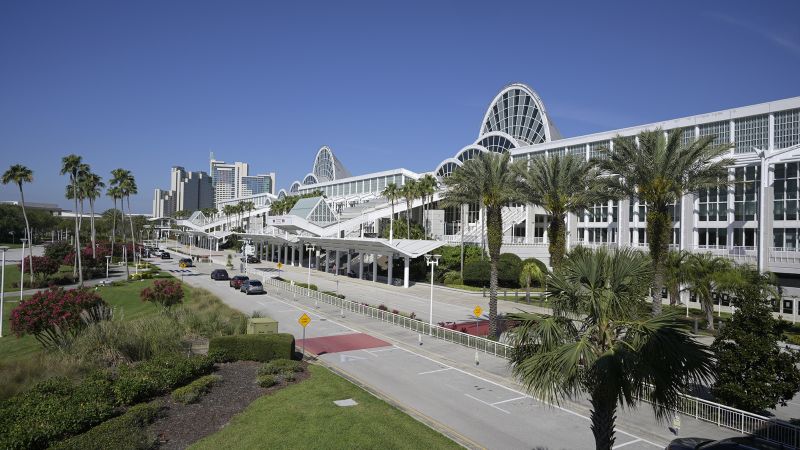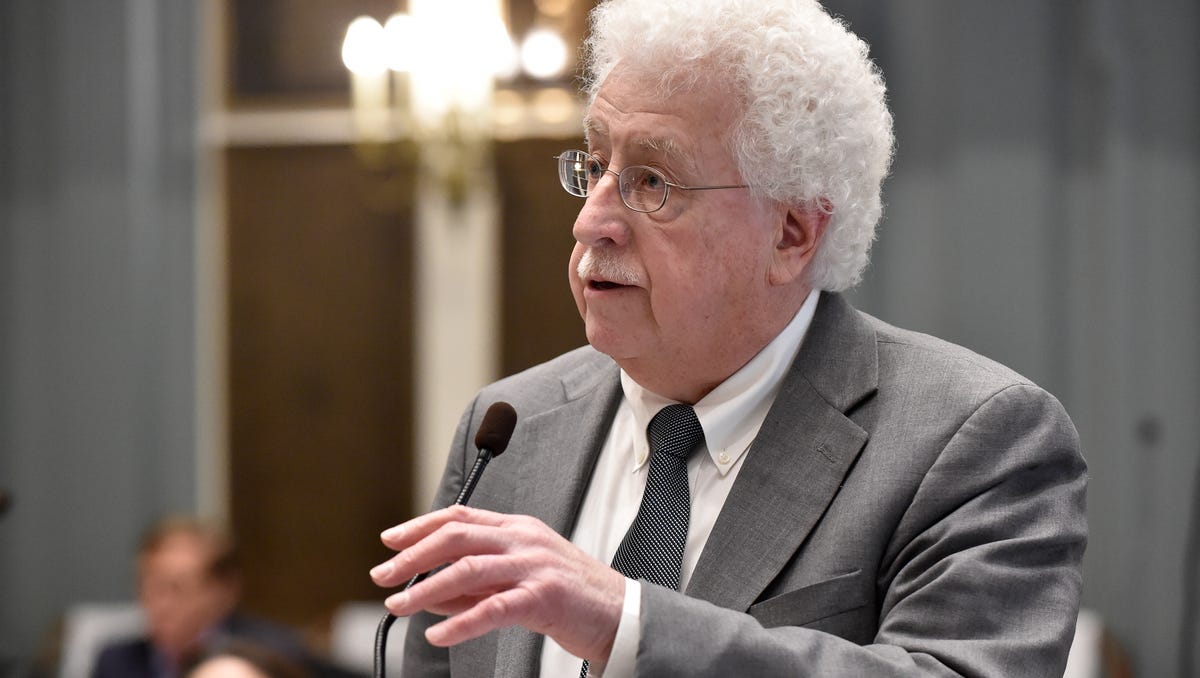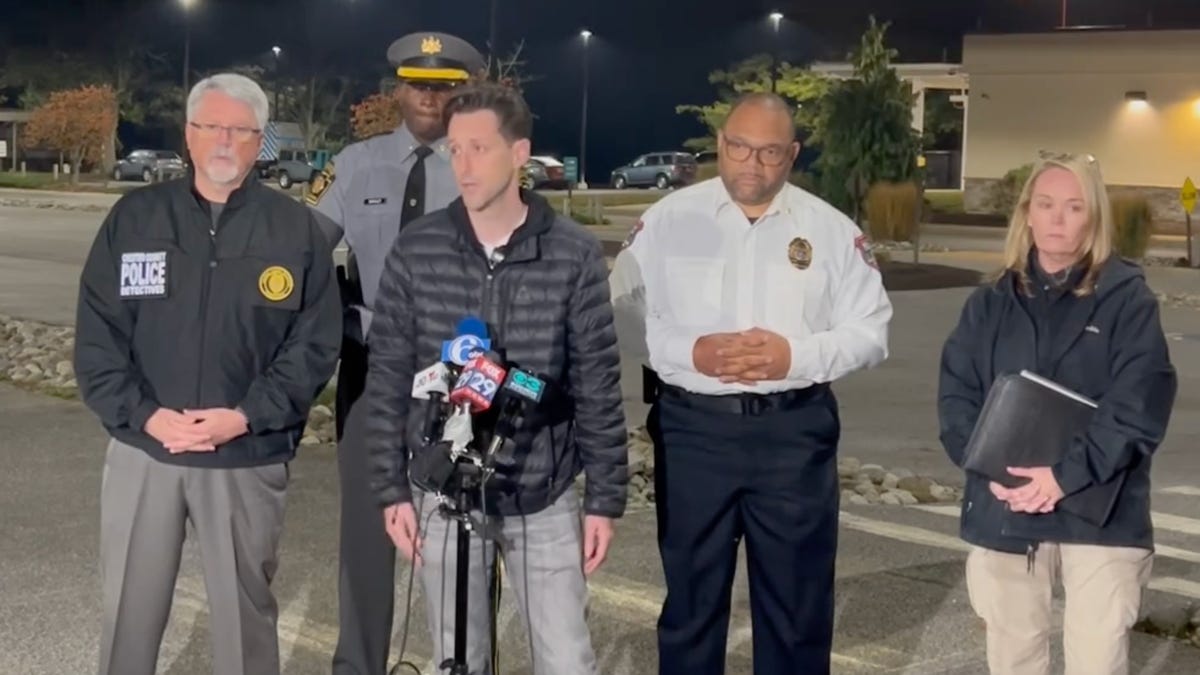Minneapolis
CNN
—
A slew of new bills signed into law by Republican Florida Gov. Ron DeSantis has draped the Sunshine State in controversy, spurring protests, lawsuits and travel advisories warning the state is “openly hostile” toward people of color, immigrants, women and LGBTQ+ community members.
The fallout is starting to spread to a key economic artery for an income-tax-free state heavily reliant upon tourism taxes: Florida’s convention business.
In recent weeks, at least a dozen organizations have announced plans to either cancel or relocate their upcoming conferences scheduled to take place in Florida, making a statement by having their thousands of attendees and millions of dollars flow into other states deemed safer and more welcoming.
While DeSantis’ office brushes this off as a “media-driven stunt,” tourism officials and community organizations in the state say what’s happening now may be just the beginning.
“Unlike leisure business, which is a very short-term booking window [in weeks or months], conference business is long term,” said Stacy Ritter, president and chief executive officer of the Visit Lauderdale tourism marketing agency in Broward County, Florida. “We’re booking ’26 to ‘30 now, so any impact that this might have is not going to be seen for years to come.”
As of July 26, Ritter said that Visit Lauderdale has tallied 10 events and conventions that were canceled by organizations citing recently enacted laws, policies and travel advisories. That amounts to 15,000 lost hotel room nights and an estimated $20 million economic impact, she said.
Ritter, a longtime Democratic politician in the state, said she first started to see some businesses pull back following the 2022 legislative session and the first iteration of the ruling known as the “Don’t Say Gay” law. At the time, she also received emails from leisure travelers suggesting they wouldn’t come back to Florida because they perceived it was hostile to the LGBTQ+ community.
“That trickle from last year became a little stronger,” she said. “I don’t have a crystal ball, I wish I did, but I don’t know what happens in the future if this becomes a thing, or if this is a blip. Nobody knows.”
For now, the estimated losses — especially when spread out over a period of years — represent a small percentage of Broward County’s annual Tourist Development Tax collections, which were $123.9 million in the 2022 fiscal year. But Ritter said any loss of business is potentially concerning, especially in light of some large-scale investments made in recent years.
Annual conferences are planned well in advance to ensure that it’s a smooth process to bring thousands of people together for a few days, and last-minute shifts are sometimes next to impossible for organizations.
“Broward County has invested $1.5 billion in building an 801-room Omni hotel connected to our expanding and renovated convention center, [but] we are not seeing the bookings for ’26, ‘27, ‘28, ‘29 and ‘30, which we would have anticipated — considering that we will have this shiny new toy in the neighborhood in late-2025,” she said.
At Orlando’s Orange County Convention Center, the second-largest convention venue in the United States, there have been four canceled events: the 2024 AnitaB.org Grace Hopper Celebration, the 2024 National Society of Black Engineers’ 50th annual convention, the 2025 American Education Research Association annual meeting, and the 2027 Association of periOperative Registered Nurses Global Surgical Conference & Expo.
AERA pulled its 15,000-person meeting in Orlando after Florida passed the Fairness in Women’s Sports Act, which prohibits transgender female athletes from participating in women’s sports teams, said Tony Pals, spokesperson for AERA, in an email to CNN. In 2021, AERA adopted a motion that it would not hold a conference or event in a state with anti-trans laws, Pals added.

Officials for AORN, however, declined to say whether its decision was tied to any specific piece of legislation or travel advisory.
OCCC officials declined to comment beyond issuing a written statement from Mark Tester, its executive director, who said the convention center “prioritizes the safety and comfortability” of employees, attendees and community members.
In Tampa, the city’s largest convention center hasn’t seen any events cut bait. However, the organizations that are still hosting their conferences this year at the Tampa Convention Center “have expressed to us their displeasure with legislation,” Juan Lopez, the center’s sales and marketing manager, told CNN.
“There is concern about prospective clients and their hesitation to come to Florida or choose any Florida destination,” he said. “However, our community continues to message and advocate for all groups to come to Tampa, knowing that irrespective of what is occurring within our legislation, Tampa remains an inclusive destination where we welcome and embrace all groups regardless of race, religion, sexual orientation, regardless of what’s happening politically.”

DeSantis’ press office declined request for an interview and for additional comment beyond an emailed statement:
“This is nothing more than a media-driven stunt,” press secretary Jeremy Redfern wrote via email. He noted that Florida is “experiencing record tourism,” had a record number of visitors during the first quarter of this year and was among the six fastest-growing states in the South contributing more to GDP than the Northeast.
“Under the leadership of Governor DeSantis, Florida’s economy is booming, with Florida being the fastest-growing state and having the largest net domestic in-migration,” Redfern said in a statement.
The political climate has changed the calculus for many organizations as they host events in Florida this year and weigh future conferences.
The Math Association of America, which this week hosted its annual MathFest in Tampa, laid out an extensive list of initiatives on its website for members in advance of the event, including information on gender-neutral bathrooms, security details, and efforts to engage with the local community.
AnitaB.org, an organization of female and non-binary tech workers, said in an open letter that its Grace Hopper Celebration taking place September in Orlando will “conclude our investment in Florida, and we will not return until this legislation is overturned and the state becomes more welcoming to all.” The organization cited laws that restrict access to abortions, allow for permit-free concealed carry of a firearm, that target undocumented immigrants and that restrict educators’ curriculum especially as it relates to LGBTQ+ individuals and people of color.
AnitaB.org and the MAA did not respond to CNN’s request for comment.

It was a difficult decision for the National Society of Black Engineers to move its 2024 event from Florida, said Janeen Uzzell, CEO of the National Society of Black Engineers, which two years ago selected Orlando to serve as the host city for its 50th annual convention.
But after conversations with the NAACP, the National Urban League, legal team, sponsors, members of Congress as well as other organizations in the same boat, the NSBE decided it was best to not have the event there, she said, adding that “significant sums” of money are potentially being left on the table.
The society was formed in 1975, during the Black Power Movement; and as the organization celebrates its 50th anniversary and looks to honor its mission of increasing the number of Black engineers, the climate in Florida undermines that, she said.
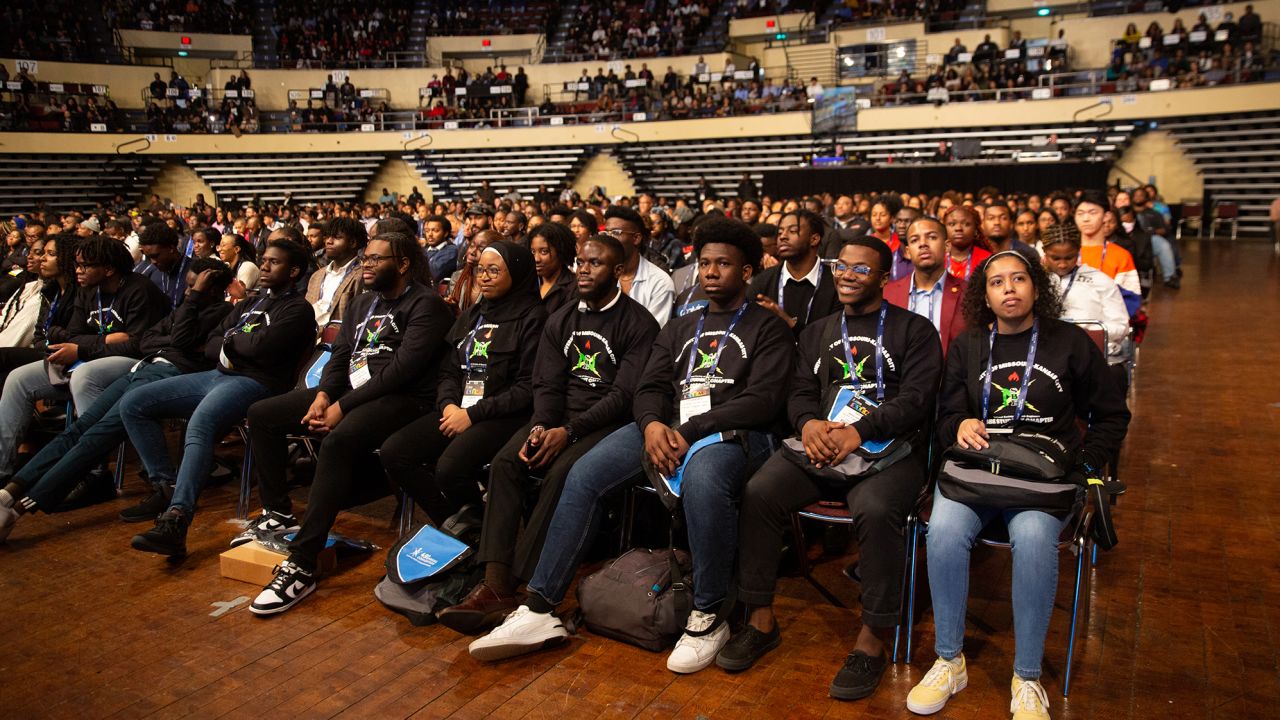
“And so for the very reasons that they came together to create NASB, those are some of the same, unfortunate reasons why we still exist today — beyond our scholarship and the opportunity to fund education and help students get jobs and to build the pipeline of engineering,” she said. “But unfortunately, now we’ve come to a head with House Bill 999 [which bans state universities from using funds to promote diversity, equity and inclusion or Critical Race Theory] that cause us to have a compromised experience, and so we’re going back to the roots of why we were started and we’re going to stand firm in that, and that’s unwavering.”
But for the Association of Collegiate Schools of Planning, a “principles-based decision” was made to move its fall 2023 conference from Florida to another host city.
“While no place can be 100% safe, Miami and Florida in Fall 2023 did not feel like the best place to gather for our annual conference,” Laxmi Ramasubramanian, president of the ACSP, wrote to members on June 28 in a letter that was also provided to CNN. “We worried about attrition in conference attendance because some of our attendees were likely to feel uncomfortable, unwelcome, or fear for their own safety while navigating Miami outside of the conference venues.”
Safety was a paramount concern for board member Petra Doan, a longtime and recently retired Florida State University professor who transitioned 25 years ago while on faculty. Doan, who moved to Maine last year after 33 years in Florida, said she considers herself a political refugee.
“I often feel like if I will go back to Florida, I’ll have a target painted on me because I am openly trans,” Doan said.
Doan also expressed concern for the field and teaching of urban planning under the new laws.
“If we don’t provide our planner tools to understand these minority populations, they’re at a disadvantage,” she said. “Cities have been notorious places where minorities rights get trampled, and so I was doing my bit to try to reorient the training of people who would go on and plan cities. “And I think it was successful, but it was clearly not what the political hierarchy in the state of Florida were interested in by the time I left.”
Travel boycotts are nothing new for the convention business.
“It ebbs and flows,” said Jack Johnson, chief advocacy officer for Destinations International, a membership association that advocates on behalf of tourism professionals and organizations.
In recent decades, states such as Arizona, Indiana and North Carolina have seen some of the largest and costliest travel boycotts.
In the late 1980s and early ’90s, Arizona lost a Super Bowl and dozens of conventions because of efforts to cancel the Martin Luther King Jr. holiday, and two decades later, the Grand Canyon State was again blacklisted by businesses, cities and states for a controversial immigration-enforcement law. In Indiana, the Religious Freedom Restoration Act resulted in the cancellation of about 12 conventions and $60 million in lost economic impact, according to Visit Indy research; and North Carolina’s proposed “Bathroom Bill” has been estimated to cost the state more than $3.7 billion over 12 years, according to an Associated Press analysis.
“Now we’ve got a whole wave of boycotts that are occurring against multiple states,” Johnson said.
Part of that is attributable to travel bans issued by states or localities, he said. California, for example, restricts state-funded and state-sponsored travel to 24 states identified as enacting discriminatory laws.
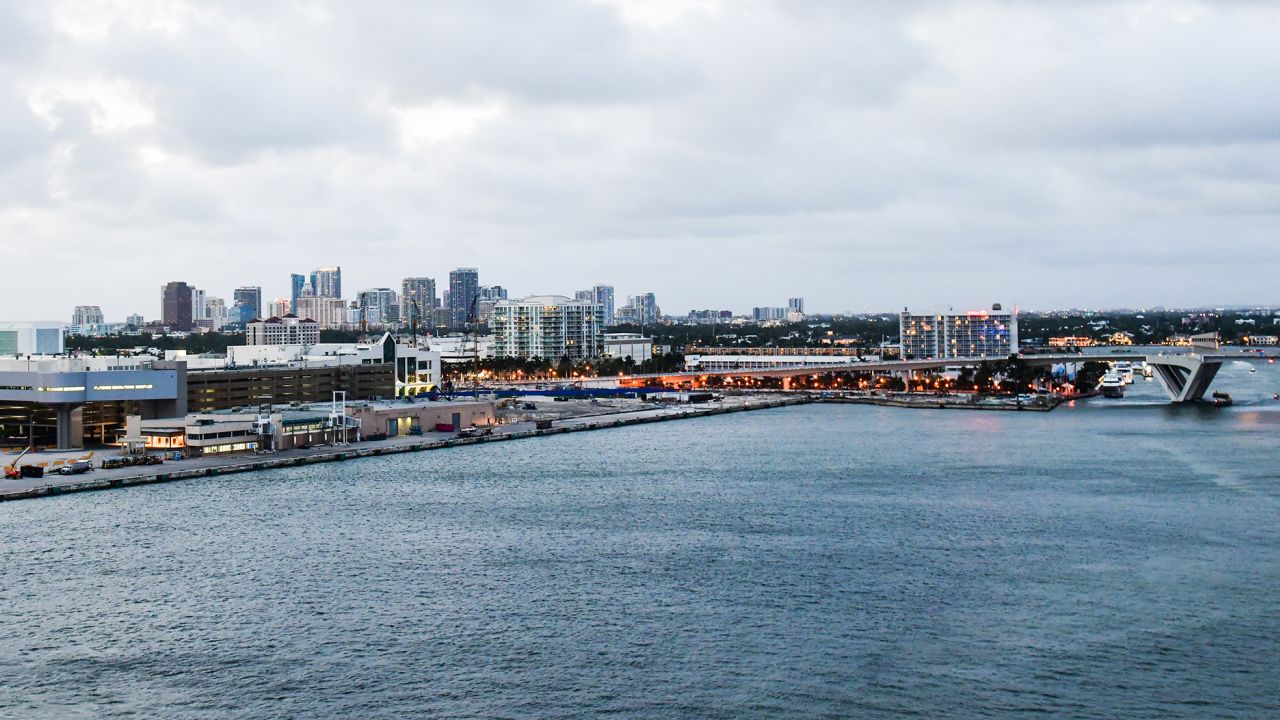
“And then organizations that take a stand on various social issues don’t want to go to various states, most notably now is Florida and probably Tennessee and Texas,” said Johnson. “Depending on the issue, there can be anywhere between 20 and 30 states that may be on a list of [organizations] pulling out or just avoiding pursuing contracts.”
Destination International firmly opposes travel boycotts and believes that there are better approaches to take if an organization wants to cancel a show for purely political reasons.
“We believe that there are better approaches to tackling the reasons that a show or an event may decide not to go for purely political reasons,” he said.
Visit Lauderdale’s Ritter said travel boycotts could ultimately hurt the communities people are trying to support.
“I do think that people who don’t live in Florida should recognize that there are 20 million of us who live here,” she said. “We are not monolithic. We’re not the Borg. We don’t all think as one. And there are destinations in Florida that welcome people who don’t think like they do, who don’t look like they do, who don’t worship like they do, who don’t identify like they do.”
She added: “Just as there are red counties in blue states, there are blue counties in red states which embrace those values, and we are one of them. That’s what we hope people will remember as they’re making their decisions: We have always celebrated diversity, we have always been an inclusive destination.
Equality Florida, an organization that advocates for LGBTQ+ civil rights, has been inundated with calls from individuals and organizations wondering whether it would be more impactful to travel or spend their dollars elsewhere as a means of protest.
“It has been heartbreaking to see families fleeing; it has been absolutely devastating,” said Nadine Smith, co-founder and CEO of Equality Florida. “Some of our best volunteers, strongest, most dedicated people have said, ‘I can’t, in good conscience stay where the governor has made this a hostile place for my kids and our family.’ That said, there are a lot of people who are staying and fighting back, and I have nothing but respect for whichever decision people make.”
Smith said that this is a “gut-check moment” for businesses that have talked about diversity and that “everyone’s paying attention to who stands up and who doesn’t.”
She added that she fears the damage has already been done from these laws, and that it will take years to recover.
“The thing about economic erosion, it’s like climate change: People go, ‘Oh, we’ve still got tourists and people are still on the beaches.’ Yeah, we do, and Florida is a beautiful place, but how do you tally what you’re losing?” Smith said. “How do you tally what it means to have the best and the brightest students after graduation go elsewhere with their talent?”

